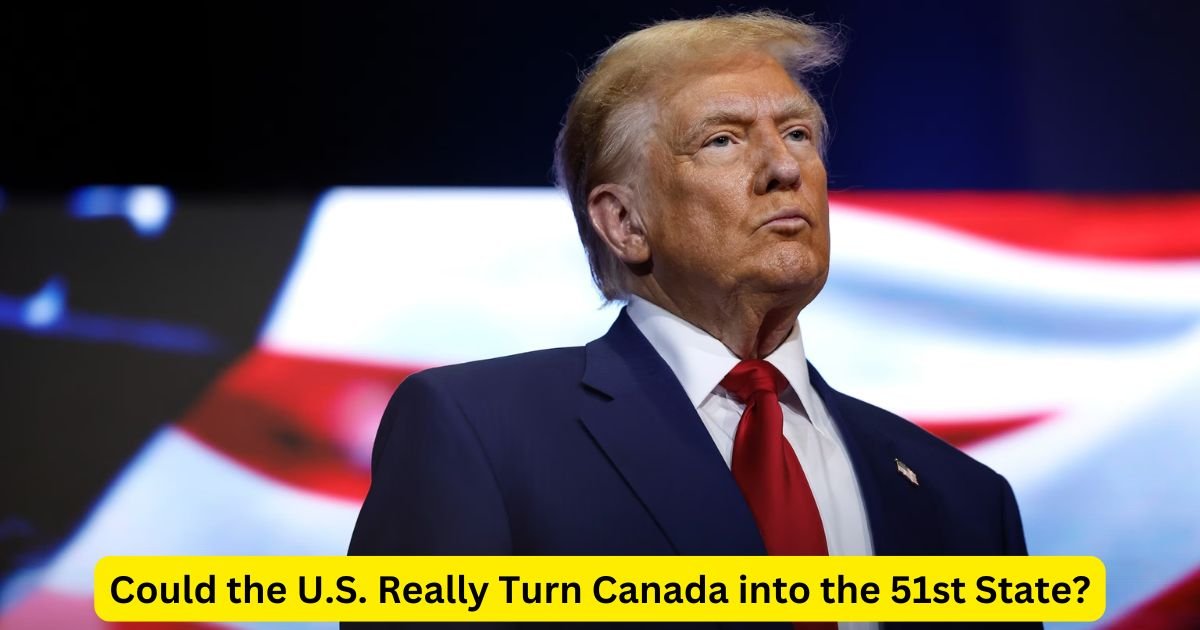Talks about Canada becoming the 51st state of the United States have ignited debates on both sides of the border. The question is not just political, but deeply existential: could Canada ever realistically abandon the maple leaf for the stars and stripes? Experts suggest that while it’s technically possible, the road would be fraught with challenges, both political and constitutional.
Adam Chapnick, a professor of defense studies at the Canadian Forces College in Ontario, believes that any such move would face significant hurdles. “If the Americans wanted to conquer us militarily, I guess they could. Otherwise, not really, and certainly not as quickly as some might think,” says Chapnick. The prospect of dismantling the world’s longest undefended border would involve lengthy processes on both sides, making it a daunting task.
What Would It Take for Canada to Join the U.S.?
For such a drastic change to occur, Canada would need to disband its current governmental structure. Experts point out that this would require a constitutional amendment, demanding approval from the House of Commons, the Senate, and each of the country’s provinces.
Even then, Indigenous Nations would need to be consulted, and their consent would not be guaranteed. “They have their own sovereignty, and there’s no certainty they would want to join the United States,” adds Chapnick.
Meanwhile, the U.S. government would face its own challenges. Annexing Canada would require votes in both Congress and the Senate. According to Chapnick, many American lawmakers would be reluctant to take on a new state with a population of around 40 million people.
“The fear for Republicans would be that Canada’s seats in Congress could shift the balance toward Democrats,” Chapnick explains.
Key Roadblocks
Frederic Berard, a lawyer and professor at the Université de Montréal, highlights several reasons why Americans might be interested in integrating Canada, including its vast resources like water and energy. However, he believes achieving the unanimity required for Canada to willingly join the U.S. is highly unlikely.
If the U.S. ever resorted to military force, Canada’s options would be limited. The U.S. holds a permanent seat on the UN Security Council and has not signed on to the international war crimes tribunal.
“In such a scenario, Canada would need to rely on diplomacy,” says Berard. “We would need to seek support from allies in Europe and other global partners.”
Chapnick dismisses the idea of military action outright, calling it absurd. “The U.S. and Canada are trusted allies with deep intelligence-sharing partnerships. It’s ridiculous to think they would ever resort to violence. Even Trump has stated he wouldn’t use force,” he notes.
A Negotiation Ploy?
Many analysts believe the idea of Canada becoming the 51st state is more of a negotiation tactic than a serious proposal. Donald Trump has been known for making bold statements to gain leverage in diplomatic discussions.
Veteran political analyst John Parisella warns Canadians not to overreact. “Canada must remain calm. Our leaders need to come together, find common ground, and act in our best interest as a nation. We shouldn’t be distracted by provocations meant to sow division.”
As conversations swirl around this provocative idea, experts agree that the likelihood of Canada joining the U.S. remains incredibly slim. The two countries share a unique and valuable partnership—one that thrives on mutual respect and cooperation, not annexation.
Read More News:
Why Greenland? The Remote Island at the Crossroads of Climate, Resources, and Global Politics
